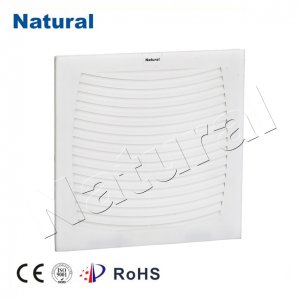In modern industrial and commercial settings, maintaining a clean and healthy indoor environment is crucial. One key component that contributes significantly to achieving this goal is the ventilation system, specifically the ventilation filter fans. These unassuming devices play a vital role in enhancing air quality and overall operational efficiency.

The Significance of Ventilation Filter Fans Ventilation filter fans, also known as exhaust filter fans, are designed to regulate air circulation by drawing in fresh air and expelling stale or contaminated air. Their primary function is to ensure a constant exchange of air, preventing the buildup of pollutants, humidity, and unwanted odors in enclosed spaces. This is particularly important in environments where there is a high concentration of airborne particles, such as dust, smoke, or fumes. Air Quality Improvement One of the most notable advantages of ventilation filter fans is their ability to significantly improve indoor air quality. These fans are equipped with specialized filters that can capture a wide range of contaminants, including dust, pollen, allergens, and even harmful microorganisms. As the fans draw air through these filters, the pollutants are effectively trapped, leaving behind cleaner and healthier air. This is of utmost importance in spaces like laboratories, cleanrooms, and production facilities, where maintaining a controlled and sterile environment is imperative. Energy Efficiency and Cost Savings Beyond the obvious benefits to air quality, ventilation filter fans also contribute to energy efficiency and cost savings. By ensuring a steady flow of fresh air, these fans help regulate temperature and humidity levels. This can lead to a reduced reliance on heating, ventilation, and air conditioning (HVAC) systems, resulting in lower energy consumption and decreased utility bills. Additionally, preventing the accumulation of airborne particles in equipment and machinery can extend their lifespan, reducing maintenance and replacement costs. Enhanced Equipment Performance Industrial processes often generate a substantial amount of heat, which can impact the efficiency and reliability of equipment. Ventilation filter fans aid in dissipating excess heat, preventing overheating and potential equipment failures. By maintaining optimal operating temperatures, these fans contribute to the consistent performance of machinery, ultimately leading to increased productivity and reduced downtime. Choosing the Right Ventilation Filter Fan Selecting the appropriate ventilation filter fan is essential to ensuring its effectiveness. Factors to consider include the size of the space, the type of pollutants present, and the required air exchange rate. Different types of filters, such as HEPA (High-Efficiency Particulate Air) filters, activated carbon filters, and electrostatic filters, offer varying levels of filtration based on specific needs. Conclusion Ventilation filter fans might not be the most conspicuous components of a facility, but their impact on indoor air quality, energy efficiency, and equipment performance cannot be understated. These fans play a crucial role in maintaining a safe, healthy, and productive environment for both workers and equipment. As industries continue to prioritize sustainability and employee well-being, the adoption of ventilation filter fans will undoubtedly remain a fundamental aspect of facility management and operations.